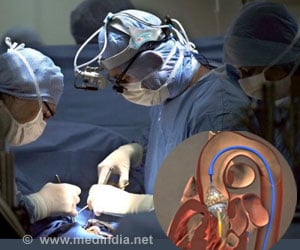
‘GALACTIC-HF showed that omecamtiv mecarbil was superior to placebo at improving cardiovascular outcomes in heart failure patients with low ejection fraction. Omecamtiv mecarbil is a novel, selective cardiac myosin activator that has shown to improve cardiac function & to decrease the ventricular cardiac myosin activator’
Tweet it Now
A key factor in the pathogenesis of Heart Failure (HF) with reduced ejection Fraction is the initial decrease in the systolic or contraction function of the heart. There have been attempts to increase the cardiac contractility with oral drugs. However these drugs that increase the contractility ( so called ionotropic calcitropic drugs) have unfortunately resulted in increased mortality rates even at pharmacologically effective doses. Omecamtiv mecarbil is a novel, selective cardiac myosin activator ( cardiac myosin – unit of heart muscle) that has shown to improve the cardiac function & decrease the ventricular cardiac myosin activator. At the same time it decreases ventricular volumes, heart rate & N-terminal pro–B-type natriuretic peptide in patients with chronic HF.
More than 8,000 patients with chronic symptomatic (NYHA Class II to IV) HF , with left ventricular ejection fraction ≤35%, elevated natriuretic peptides were randomized to either oral placebo or omecamtiv mecarbil employing a pharmacokinetic-guided dose titration strategy using doses of 25, 37.5, or 50 mg twice daily. These patients were either hospitalized for HF or had history of hospitalization or emergency department visit for HF within a year of screening.
The patients enrolled in the phase three had the following underlying conditions:
- (78%), with an average age of 66 years, average ejection fraction of 27%,
- 62% had coronary artery disease,
- 40% had Type 2 diabetes,
- 70 % had high BP ,
- 36 % had chronic kidney disease
- & 25 % were hospitalized at the time of enrolment.
The patients who received Omecamtiv mecarbil had a lesser risk of experiencing HF event or CV death. The medicine had a greater effect in patients with lower ejection fraction (an indicator of severe HF). The concentration of the Brain natriuretic peptide, a hormone that increases with worsening HF was reduced. There were no significant adverse effects reported. In addition the adverse effects like altered potassium levels, blood pressure , heart rate or kidney function that were typically seen with other drugs.
Teer link said, “This study provides substantial evidence characterizing the efficacy and safety of this novel therapy. The trial included a wide range of patients from both the inpatient and outpatient settings, and these findings will inform potential future implementation of omecamtiv mecarbil to treat chronic heart failure."
Advertisement














